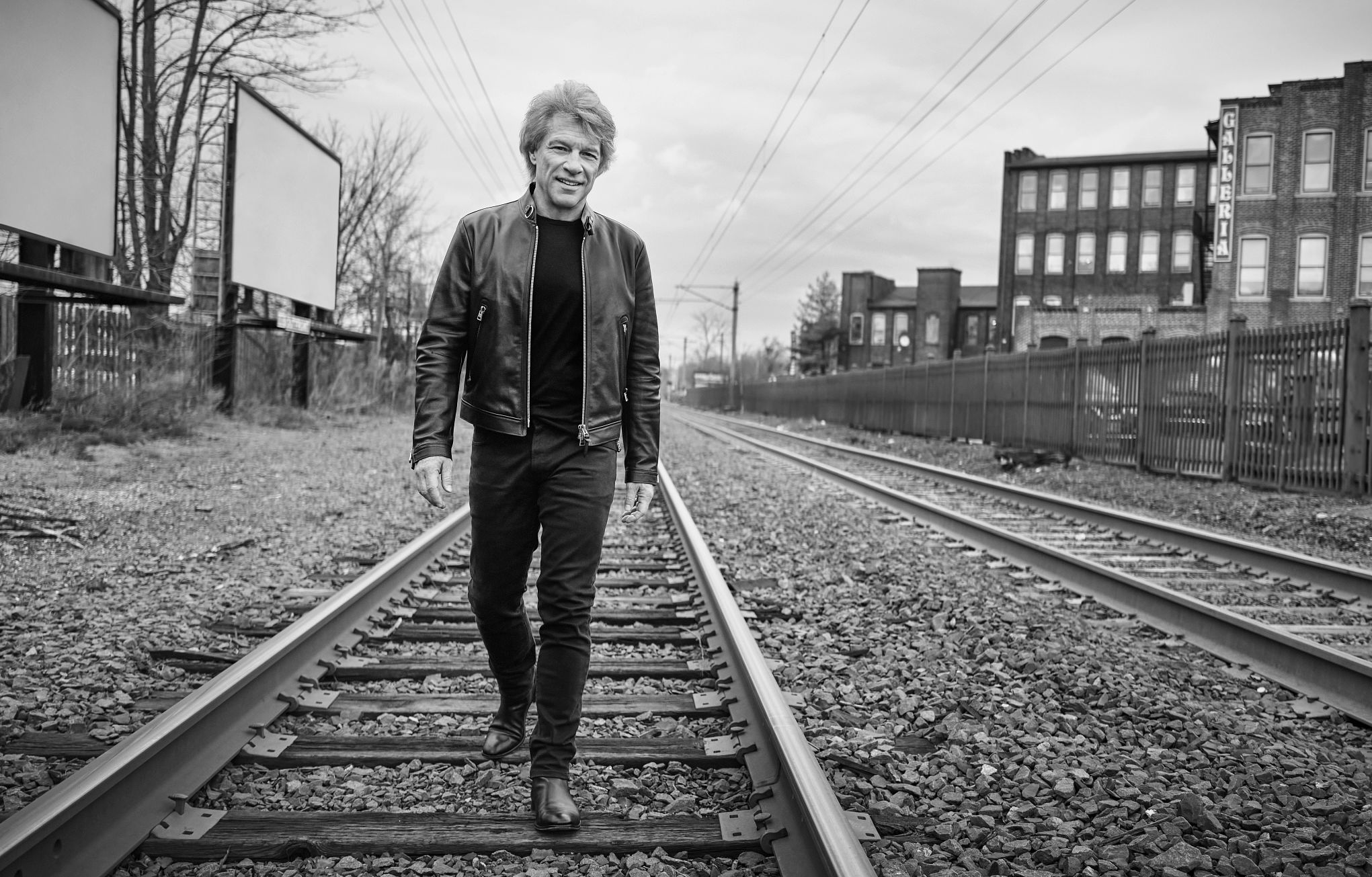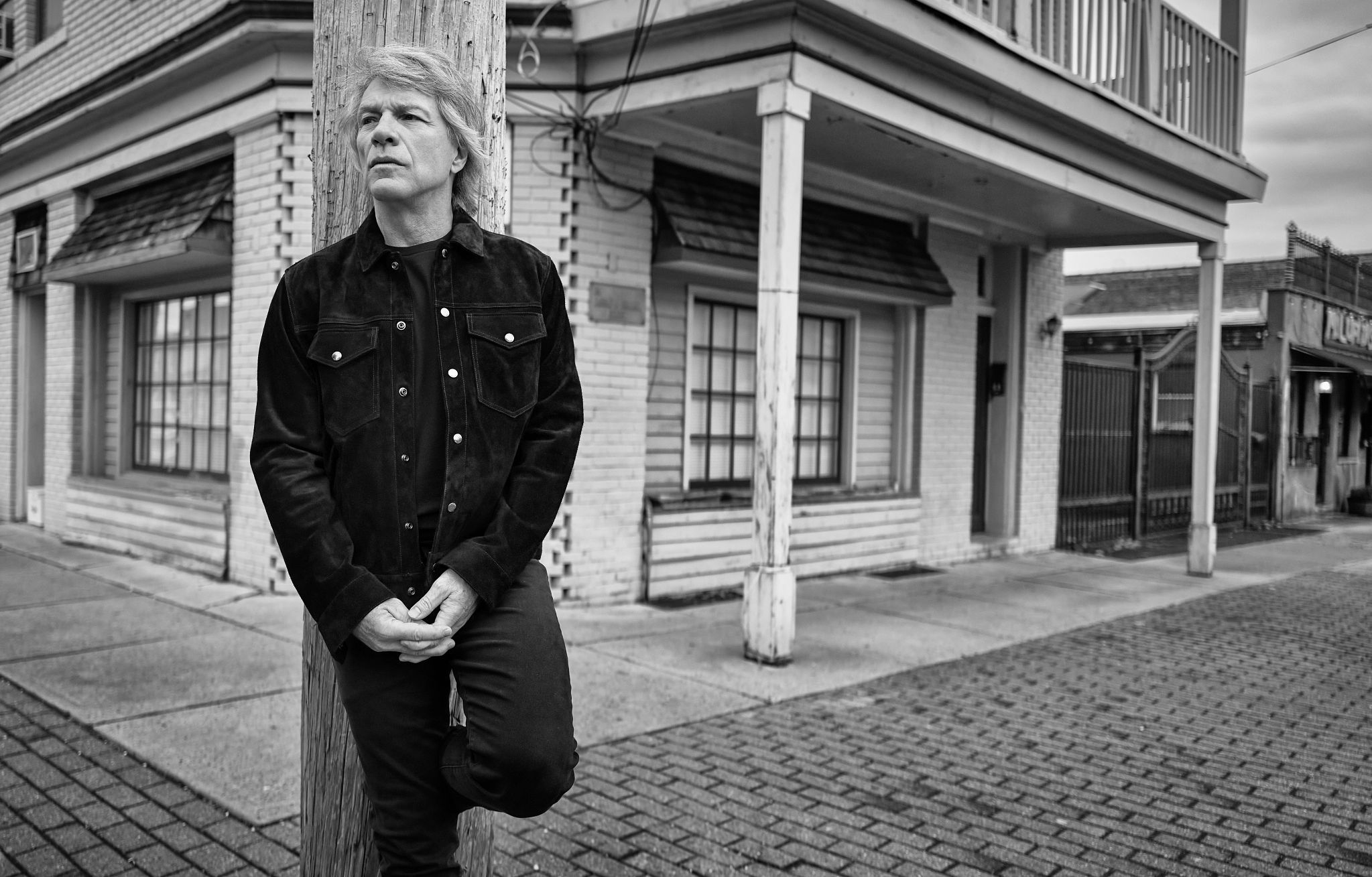AARP Hearing Center
In the spring of 2022, Jon Bon Jovi led his band on what they hoped would be a triumphant return to live performing after a two-year pandemic break. They had booked a 15-city U.S. arena tour. By the third or fourth show, however, critics were asking, “What’s going on with Jon Bon Jovi’s voice?” Known for the power, range and precision of his hard-rock belting on hits like “Livin’ on a Prayer” and “Wanted Dead or Alive,” on this tour the singer was often flat, reedy, choked. The band’s longtime keyboardist, David Bryan, who’d been playing with Bon Jovi since they were 16, says: “Something was wrong. It was scary as hell for all of us and for him.”
Legendarily driven, Bon Jovi pushed on with the tour. But after a show in Nashville, he came offstage and his wife, Dorothea, told him flat out, “It wasn’t great.” Jon and Dorothea had met and started dating in high school; they married in 1989 and have been together ever since, a remarkable feat in the music business. He knew he might be staring down the barrel of retirement, the end of a career he had worked extremely hard to build.
It was a fate he could not quite accept. That June, Bon Jovi underwent surgery on his throat, which gave him, and his band, considerable hope. Since then, they have recorded a new LP, Forever, their 16th studio album, released this June during the band’s 40th anniversary year. But when — or even whether — Bon Jovi’s voice can withstand the rigors of another multicity arena tour remains up in the air. His doctor is hopeful. Dorothea knows that her husband has the grit to confront the challenge — as she makes clear in a new four-part Hulu documentary titled Thank You, Goodnight: The Bon Jovi Story, which chronicles not only the band’s rise to fame but Jon’s vocal struggles. “He’s used to controlling everything,” Dorothea says. “I always say, by sheer will, he will make it happen.”
I met with Bon Jovi in late February, a few days before his 62nd birthday. He greeted me in the kitchen of his home, a French château–style house in New Jersey. As he prepared us some tea with ginger honey (“My crack,” he said, flashing his billion-watt smile), he immediately off-footed me with an unexpected show of modesty. I complimented him on more than 1 billion Spotify streams of “Livin’ on a Prayer,” and he waved away the praise, saying Taylor Swift and The Weeknd regularly rack up more. (For all his diplomacy, Bon Jovi holds his own in such company, with worldwide record sales of more than 130 million.)
We sat in his personal office, which was crammed with memorabilia and musical instruments. Dressed in a pale blue T-shirt and faded jeans, he looked fit and healthy. He has allowed his hair to go gray, and his once Teen Beat–pretty face is all the more handsome for its smile lines and wrinkles. His speaking voice is grainier than it used to be, and he is careful with it. There’s an awful lot riding on those vocal cords.


We Can Be Heroes
Bon Jovi’s struggle has perhaps been particularly hard on a man who, by his own admission, has been extraordinarily lucky. He was born John Bongiovi in 1962, the eldest of three sons, and raised in the modest suburban community of Sayreville, New Jersey. His parents — dad, a hairdresser; mom, a florist — had met in the Marines, and they encouraged his rock ’n’ roll dream from the start. “They were like, ‘You can do this,’ ” he recalls. “And you believed it.” At 16 he formed his band the Atlantic City Expressway, and they landed a regular gig at the Fast Lane, a bar on the Jersey Shore where his heroes Bruce Springsteen and Southside Johnny and the Asbury Jukes had cut their teeth. He jumps up and shows me a photo of the band in matching satin tour jackets. “Look at those jackets!” He laughs with irony and nostalgia. “Emulating Southside Johnny!”
Skipping college (“There was no plan B,” he says), he was working as a gofer at a Manhattan recording studio when he wrote “Runaway,” his wide-eyed response to the teenage streetwalkers who thronged the Port Authority bus terminal on his commute into the city. Recorded after hours at the studio, the single was picked up by a local radio station and was soon being requested at affiliated stations across the country. Record labels scrambled to see the band live. But there was no band. Bon Jovi reached out to acquaintances that included a guitarist and songwriter named Richie Sambora, for what all of them assumed would be a short promo tour. It would extend to four decades.
In 1983, he signed with the Mercury label of PolyGram Records, which suggested a name change from “Bongiovi” to “Bon Jovi” because it looked like “Van Halen.” After releasing two passable albums, songwriters Bon Jovi and Sambora sought fresh inspiration from the pro Desmond Child, who pushed the pair to extend their themes beyond “hot girls and cars” to tell actual stories. The trio pumped out “You Give Love a Bad Name” and “Livin’ on a Prayer” — irresistible sing-along mega anthems that powered the band’s third LP, Slippery When Wet, to No. 1 on the Billboard album chart. Global arena tours ensued. Asked about the moment when he first realized, Wait, I’m an actual rock star, Bon Jovi shakes his head. “You always say you’re a rock star. I played in that club in that satin jacket, and I thought I was a rock star.”
Many of the songs Bon Jovi writes are strikingly inspirational, with soaring choruses: songs about the underdog prevailing, the long-shot triumph, the star-crossed lovers who defeat the odds. And then there are songs like “Bed of Roses,” off the band’s fifth LP, Keep the Faith (1992), which hints at the temptations of living out of lonely hotel rooms on the road. It includes the lyrics: “ ’Cause a bottle of vodka’s / Still lodged in my head / And some blonde gave me nightmares / Think that she’s still in my bed … ” He and Dorothea were married when he wrote those words, which begged a nosy journalistic question.
“Those lyrics to ‘Bed of Roses,’ ” I start to say, delicately, “are very — ”
“Honest,” he cut me off. “I don’t hide behind anything. I’ve never lied to my wife’s face. We were 18 when we met and started dating. Life has happened.”































.jpg?crop=true&anchor=13,195&q=80&color=ffffffff&u=lywnjt&w=2008&h=1154)


































More From AARP
The Extraordinary World of Music and the Mind
It can remind you of the best days of your life. It can comfort you. It can even make those who remember little sing again
Huey Lewis’ ’80s Tunes Hit Broadway in ‘The Heart of Rock and Roll’
Singer shares his struggles with hearing loss, how the new musical is helping keep him creative
More Rock Stars Are Facing Hearing Loss
How Dylan, Paul Simon and Dave Grohl are copingJames Taylor: ‘I Love AARP. I Love My Community of Older People.’
Singer extols the value of life experience and talks summer tour, performing with Taylor Swift, retirement plans
Recommended for You